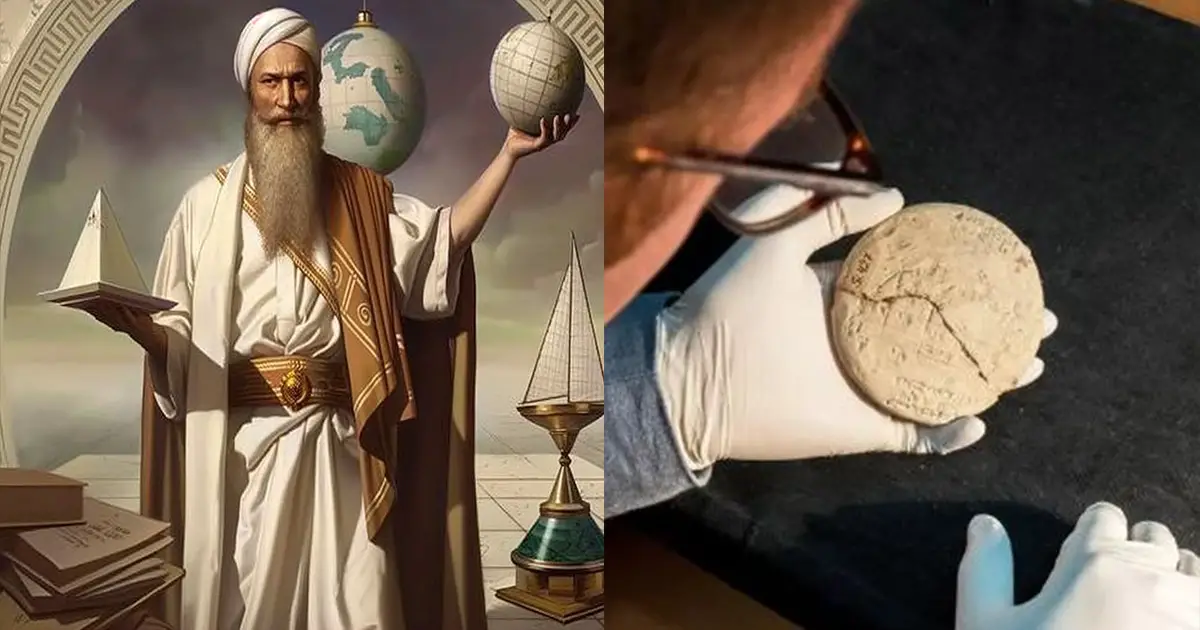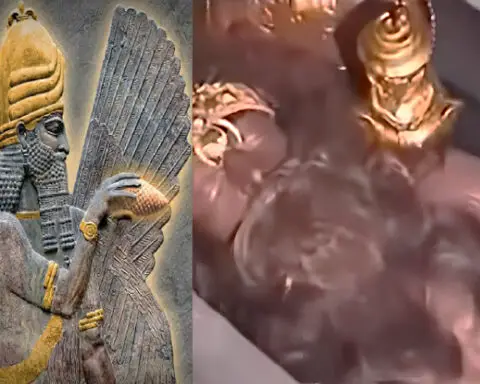In the vast and mystic halls of history, where shadows whisper ancient secrets, lies a tale not fully told, a mystery woven into the very fabric of mathematics. This is the story of the Babylonian Pythagorean Theorem, a mathematical enigma that challenges the chronicles of scholarly heritage and beckons us to peer into the murky depths of antiquity. It is a narrative that unfolds in the dusty realms of ancient Mesopotamia, far predating the Greek mathematician Pythagoras, who has long been credited with its discovery.
The Discovery That Shook the Foundations
Imagine the scene: archaeologists, their hands trembling with anticipation and eyes wide with the promise of discovery, unearth a Babylonian tablet. This is no ordinary artifact but a beacon from the past, containing within its inscriptions the keys to a mathematical revelation that would stun the modern world. This tablet, dating back to 1770 BC, and its brethren tell a tale of a civilization far advanced in its understanding of geometry and mathematics. The Babylonian Pythagorean Theorem emerges not as a new finding but as an ancient wisdom, casting shadows over the legacy of Pythagoras himself.
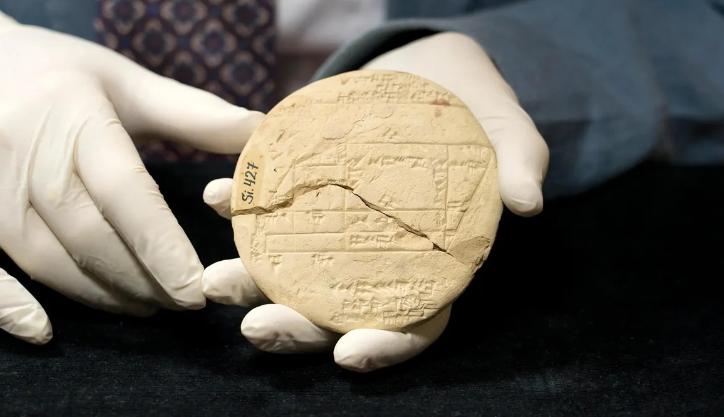
Deciphering the Code of the Ancients
The heart of this mystery beats within the cuneiform script, where mathematicians have deciphered the formula d = √2, illustrating the Babylonians’ grasp of the diagonal of a square and its implications. This formula, a specific case of the Pythagorean theorem, suggests that the Babylonians understood the relationship between the lengths of the sides of a right-angled triangle long before it was enshrined in the annals of Greek mathematics. But how did they come to this knowledge, and what does it reveal about their civilization?
A Legacy Etched in Clay
The significance of these findings cannot be understated. The tablets, with their intricate diagrams and mathematical notations, stand as a testament to a culture that valued the pursuit of knowledge. Bruce Ratner, a modern mathematician, points to these artifacts as irrefutable evidence of the Babylonians’ sophisticated mathematical understanding. Their knowledge of irrational numbers, as embodied in the square root of 2, reveals a depth of insight that would not be out of place in a modern classroom.
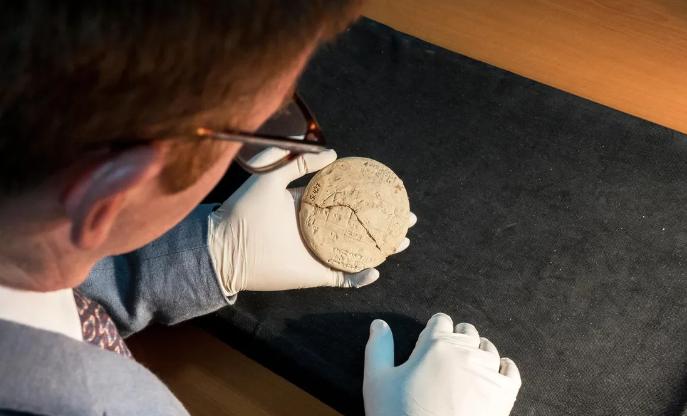
The Myth of Pythagoras: Unraveling the Threads
As the shadows recede, we are left to ponder the legacy of Pythagoras. Was he merely a custodian of wisdom passed down through the ages, a figurehead for knowledge that had long since been established? The Babylonian Pythagorean Theorem suggests a timeline of discovery and understanding that stretches back further than we might have imagined. The Greeks, with their penchant for attributing discoveries to their great minds, may have merely adopted and adapted this ancient knowledge, incorporating it into their rich tapestry of scientific and mathematical thought.
The Babylonian Pythagorean Theorem: A Bridge Across Time
This story is more than just an academic curiosity; it is a bridge that connects us to our mathematical ancestors. It challenges our preconceptions about the origins of knowledge and invites us to consider the collective journey of human understanding. The Babylonian Pythagorean Theorem serves as a reminder that the roots of our scientific and mathematical heritage are deep and intertwined, stretching across cultures and epochs.
Reflections in the Mirror of History
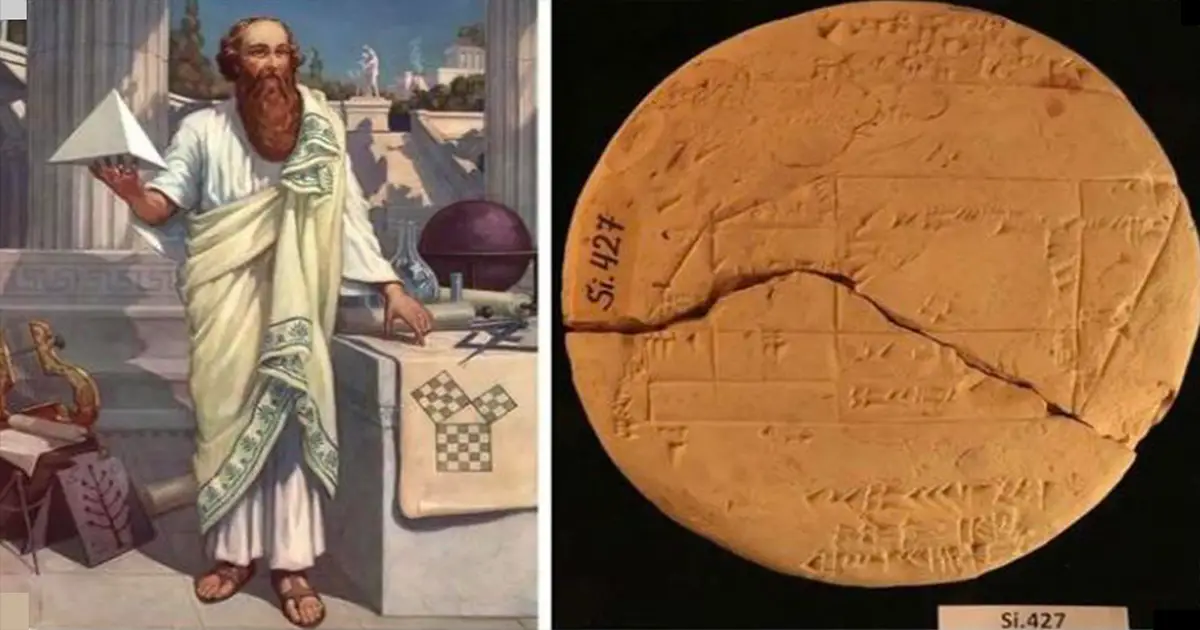
As we stand at the crossroads of history and mathematics, the Babylonian Pythagorean Theorem beckons us to look beyond the names and figures that have dominated our textbooks. It invites us to embrace a more nuanced understanding of the past, where knowledge is a river that flows through many lands and cultures. The Babylonians, with their advanced mathematical prowess, remind us that the quest for understanding is a shared human endeavor, transcending time and geography.
The Unending Quest for Knowledge
In the final analysis, the revelation of the Babylonian Pythagorean Theorem is more than just a footnote in the annals of mathematics; it is a testament to the unending human quest for knowledge. As we delve into the mysteries of the past, we are reminded of the countless unnamed scholars who have contributed to our collective understanding. The story of the Babylonian Pythagorean Theorem is a beacon of inspiration, urging us to continue exploring, questioning, and unraveling the mysteries of the universe.

